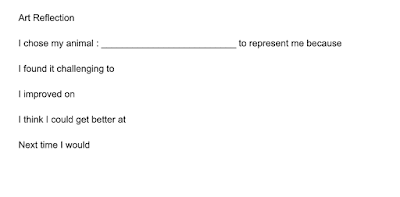“Connect with people and your practice will change forever.”
If I had to describe it in one statement, this is what CAfLN meant to me. Now if I could only remember who said it!
This May, I met a group of passionate people who are on the ground and getting dirty with assessment. This is grassroots change operation! I had such an energizing conference- from leading the school tours, to immersing in a full day of workshops, to wrapping it up at the Symposium.In the moment, CAfLN was a bit of a blur. An awesome blur, and one of my favourite growing and learning experiences in a long time. It was inspiring to know people are out there with the same passions, striving to improve their practice- not only for themselves, but wanting to change how assessment is done.
A brief summary...
As part of the planning committee, I volunteered for the school tours to proudly show off some great things Delta is doing around AFL. These things are, in fact, the reason I left my previous district after 20 years to join Delta! I was honoured (they seriously let me have the tour bus microphone!) to lead 60+ educators through 3 different elementary schools.
It wouldn’t have been right to lead them without giving them their own learning targets and reflection!
Each school was quite different in their demographics, but had a similar focus and purpose.
We finished off the night with our Farm Roots Mini school tour, BBQ and ignites. Here’s the link if you want to hear my thoughts on the challenges and successes with going gradeless, in Dr. Seuss rhyme, of course.
The next day, the conference itself, was a day filled with rich assessment knowledge. I loved the variety of research, practical experience and everything in between. And the final day, the Symposium for members, was another time for sharing, connecting and tying it all together in reflection. Ok, this is a really brief summary. I’m still processing all of that and finding ways to weave all the learning into my teaching.
What I really wanted to talk about, though, is what happens after the conference.
When you work out, the muscle growth and strengthening doesn’t happen in the gym during your exercise. It happens later, when your body is at rest. The growth occurs because the strain has created small tears in your muscle fibers. It is only in the resting stage that your body begins to repair the fibers and make them stronger.
I did a mud obstacle run two days ago. It was exhausting and I pushed myself to my physical limits. And that’s not when I was building muscle! But now, two days later, my body is very sore. I can rejoice in the fact that as I rest, my muscles are repairing and strengthening.
This is how I feel about my time at the CAfLN conference. And about learning, in general. The richness comes in the reflection. It’s going to take time for me to process the learning that took place over those few days.
Reflecting with Students
Experimenting with portfolios in Fresh Grade has taught me the real power of self-assessment and reflection. Students noticing their strengths, thinking about things that challenged them, and taking time post-activity for reflection has been a powerful exercise.
When I was a younger teacher, I did (and still do) a lot of hands-on science activities. The lessons were engaging and had deep learning connections. I often wondered, though, how much the students were actually learning and taking away from the experience. I was missing a step, and that step was taking time after the action to debrief, to self-assess, to let the learning settle down into the cracks and solidify.
So how do I let this knowledge change my practice?
Slow. Down. Strive for depth, not breadth. Revisit lessons and student responses. Don’t be so quick to move on. Value the time it takes to let them think, process and reflect.
One of the most powerful formative assessment practices I used this year was spending 2 weeks on the same piece of journal writing. It felt painfully slow at the time, but looking back, I’m so glad I took the time to give feedback, let them revise, set goals, highlight growth, self-assess from exemplars, and then have them share the process with their parents.
I believe it was the back-and-forth, one step at a time, deliberate and purposeful building blocks where the real learning took place.
I’ve tried to build in reflection as a consistent and frequent thinking routine in our classroom.
From art… (how else could you assess art?)
to science…
These tools allow students to start taking an active part in their assessment… and the results have been amazing!
So ask questions!
What is the most important information/ skill/ lesson you learned?
Why is this learning important?
What are you finding challenging?
Where are you thriving?
What do you want to improve on?
What steps can you take to move forward?
These are the most important questions we can ask our students, and it all really comes down to this:



No comments:
Post a Comment